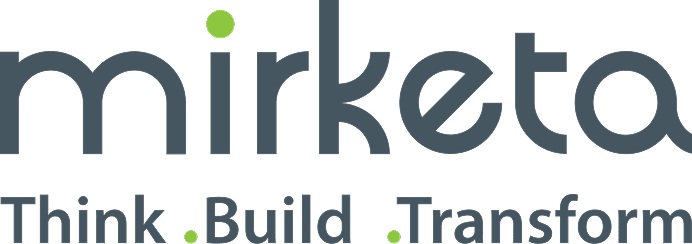The Future of Healthcare: Transforming with Salesforce Health Cloud & Elixir EHR
Author
November 14, 2024
As we move further into the 21st century, the healthcare industry is undergoing a remarkable transformation, driven by technological advancements and a shift towards patient-centric care.
At the forefront of this change is Salesforce Health Cloud, a robust platform that empowers healthcare organizations to enhance patient care, streamline operations, and achieve better treatment outcomes.
This extensive guide delves into the features, benefits, and real-world applications of Salesforce Health Cloud, highlighting its pivotal role in revolutionizing Healthcare for Providers.

Understanding Salesforce Health Cloud
Salesforce Health Cloud is part of the broader Salesforce ecosystem, which is known for its customer relationship management (CRM) solutions across various industries. In healthcare, Salesforce offers specialized tools and capabilities tailored to meet the unique needs of providers, payers, and life sciences organizations.
Key Features of Salesforce Health Cloud
- Comprehensive Patient Profiles: Health Cloud consolidates data from various sources, including Electronic Health Records (EHR), wearable devices, and patient-reported outcomes, to create detailed patient profiles. This holistic view allows healthcare providers to understand each patient’s unique health journey.
- Care Coordination and Collaboration: The platform facilitates seamless communication among care teams, ensuring that all members are informed and aligned in delivering care. Features like secure messaging, task management, and real-time updates enhance collaboration and efficiency.
- Personalized Patient Engagement: Health Cloud enables healthcare organizations to engage patients through personalized communications, appointment reminders, and educational content tailored to individual health needs and preferences.
- Analytics and Reporting: The platform offers robust analytics with Real-time reporting dashboards that provide actionable insights into patient health trends, operational performance, and care outcomes, supporting data-driven decision-making.
- Scalability and Integration: Being cloud-based, Health Cloud is scalable and integrates with various third-party applications and systems, including EHRs, ensuring interoperability and flexibility.
The Transformation of Patient Care
One of the most significant impacts of Salesforce for Healthcare is the transformation of patient care. Traditionally, healthcare delivery has been fragmented, with patients often navigating complex systems to receive care. Salesforce addresses this challenge through several key strategies.
Creating a 360-Degree Patient View
Salesforce Health Cloud consolidates patient data from multiple sources into a single, comprehensive view. This 360-degree perspective enables healthcare providers to understand each patient’s unique journey, preferences, and medical history.
- Integration with EHRs: The Health Cloud seamlessly integrates with existing EHR systems, such as Elixir EHR link, ensuring that healthcare professionals have access to the most current patient information.
- Unified Profiles: By incorporating both clinical and non-clinical data, Salesforce allows providers to see not just the medical history of a patient but also their social determinants of health. This comprehensive view enables personalized care that addresses the patient demographic & medical information.
Enhancing Patient Engagement
Engaging patients in their healthcare journey is crucial for improving outcomes. Salesforce for Healthcare employs various tools to enhance patient engagement, making it easier for patients to interact with their providers and manage their health.
- Automated Communications: Healthcare organizations can use Salesforce’s Marketing Cloud to automate personalized communications. For example, appointment reminders sent via SMS or email help reduce no-show rates, while educational content can empower patients to take an active role in their health.
- Multi-Channel Interaction: Patients today expect to communicate with their healthcare providers through various channels. Salesforce allows organizations to engage patients through email, SMS, social media, and mobile apps, ensuring that communication is convenient and effective.
Streamlining Care Coordination
Effective care coordination is essential for delivering high-quality patient care, especially in complex healthcare environments. Salesforce for Healthcare enhances collaboration among care teams, ensuring that every member is aligned and informed.
- Secure Messaging: The platform’s secure messaging capabilities facilitate real-time communication among care team members. This feature allows healthcare professionals to share critical information quickly and efficiently, improving response times and patient safety.
- Task Management: Salesforce enables care coordinators to assign tasks, set deadlines, and track progress within the platform. This structured approach to task management ensures that no aspect of a patient’s care is overlooked.
Home Health Services
Home health services involve delivering medical care to patients in their homes, offering a more personalized and comfortable environment. This approach is particularly beneficial for individuals with chronic conditions, the elderly, and those recovering from surgery.
- Personalized Care: Home health services allow for tailored care plans that consider the patient’s unique needs and preferences, leading to higher satisfaction and better adherence to treatment protocols.
- Cost-Effectiveness: Providing care at home can be more economical than hospital stays, reducing healthcare costs for both providers and patients. In India, for instance, the home healthcare industry is expected to grow significantly, with solutions being up to 40% less costly compared to hospital care.
- Improved Outcomes: Patients receiving care at home often experience better health outcomes due to the comfort and familiarity of their environment, which can accelerate recovery and reduce the risk of hospital-acquired infections.
Intelligent Appointment Management
Effective provider network management ensures that patients have access to a comprehensive range of services, improving care coordination and quality.
- Data Integration: Centralized data systems allow for real-time sharing of patient information among providers, enhancing collaboration and reducing duplication of services. This integration is crucial for delivering coordinated care.
- Performance Monitoring: Continuous assessment of provider performance helps identify areas for improvement, ensuring that patients receive high-quality care. Health plans can drive proactive performance enhancements by assessing their provider network management capabilities through a maturity model.
- Access to Care: A well-managed network ensures that patients have timely access to necessary services, reducing wait times and improving health outcomes.
Improving MedTech Operations
Advancements in medical technology (MedTech) are transforming healthcare by introducing innovative tools and devices that enhance diagnosis, treatment, and patient monitoring.
- Wearable Devices: Technologies such as smartwatches and fitness trackers monitor vital signs and chronic conditions, providing real-time data to healthcare providers and enabling proactive management of health. The global home healthcare market is estimated to reach USD 515.6 billion by 2027, with a CAGR of 7.9% from 2020 to 2027.
- Telemedicine: Remote consultation platforms allow patients to connect with healthcare providers via video calls, expanding access to care, especially in underserved areas. This approach is part of the broader trend of moving care closer to home.
Benefits of Salesforce Health Cloud
Implementing Salesforce Health Cloud offers numerous advantages for healthcare organizations:
- Enhanced Patient Engagement: By providing a 360-degree view of patients, Health Cloud enables personalized interactions, leading to improved patient satisfaction and adherence to care plans.
- Improved Care Coordination: The platform streamlines communication among care teams, reducing the risk of errors and ensuring timely interventions.
- Operational Efficiency: Automation of routine tasks and workflows reduces administrative burdens, allowing healthcare professionals to focus more on patient care.
- Data-Driven Decision Making: Access to real-time analytics empowers organizations to make informed decisions, optimize resource allocation, and improve care quality.
- Regulatory Compliance: Health Cloud is designed to comply with healthcare regulations, including the Health Insurance Portability and Accountability Act (HIPAA), ensuring the security and privacy of patient data.
Real-World Use Case:
Enhancing Patient Engagement for Large Healthcare Provider System
Mirketa, a Salesforce Gold Consulting Partner, has been instrumental in transforming healthcare delivery through the implementation of Salesforce Health Cloud and Integration with Elixir Electronic Health Records (EHR), claims data sources, and Patient Population Health Management systems, Mirketa has enhanced patient care, managed Patient Population, optimized claim submission process, and facilitated strategic growth for healthcare providers.
Optimized Provider Referral Patterning:
By integrating Health Cloud with claims data, Mirketa analyses referral patterns to help healthcare organizations collaborate with the right physicians based on specialties, insurance networks, and common procedures. This optimization enhances the quality of patient care and strengthens the provider network.
AI-Enabled Contact Service Centres for Better Patient Care:
Through the integration of Generative AI and Health Cloud, Mirketa enables healthcare providers to deliver personalized, responsive services. Connecting billing, EHR, and patient population health management platforms, contact centres reduce administrative burdens, streamline communication, and boost patient satisfaction.
Business Development Liaison Route Planning:
Utilizing Salesforce Maps and claims data, Mirketa assists business development teams in creating optimized daily route plans. These plans help healthcare representatives visit the right providers based on location, specialty, referral volumes, and other preferences, enhancing outreach efficiency.
Strategic Territory Expansion and Planning:
Mirketa employs Health Cloud to analyse geographic claims data and patient demographics, enabling healthcare organizations to make informed decisions about resource allocation and service expansion. This strategic planning supports growth in underserved areas and improves access to care.
Integrating Elixir EHR with Health Cloud
Mirketa is revolutionizing healthcare by leveraging its proprietary Electronic Health Record (EHR) and Revenue Cycle Management (RCM) solution, Elixir, built natively on the Salesforce platform. This innovative approach offers healthcare providers a comprehensive suite of tools designed to enhance patient care, streamline operations, and improve financial performance.
Key Features of Elixir:
- Comprehensive Patient Intake Management: Elixir automates the entire patient intake process, reducing manual data entry and minimizing errors. This efficiency leads to faster patient onboarding and improved data accuracy.
- 360-Degree Patient View: By integrating data from various sources, Elixir provides a holistic view of each patient’s health journey, facilitating personalized care and informed decision-making.
- HIPAA Compliance: Elixir ensures that all patient data is stored and managed in accordance with HIPAA regulations, maintaining the highest standards of data security and privacy.
- Fully Customizable Workflows: The platform allows for the customization of workflows, forms, and branding to align with the specific needs of healthcare organizations.
- End-to-End Automation: Elixir offers standard automation features and the ability to add custom workflows using Salesforce’s workflow capabilities, enhancing operational efficiency.
Impact on Healthcare Providers:
- Improved Patient Care: The comprehensive patient profiles and streamlined workflows enable healthcare providers to deliver more personalized and timely care.
- Operational Efficiency: Automation of routine tasks reduces administrative burdens, allowing healthcare professionals to focus more on patient care.
- Financial Performance: The integrated RCM capabilities optimize billing processes, reduce claim denials, and accelerate revenue cycles, leading to improved financial outcomes.
By integrating Elixir with Salesforce Health Cloud, Mirketa offers a powerful solution that addresses the unique challenges of the healthcare industry, driving digital transformation and enhancing overall healthcare delivery.
Future Trends in Healthcare and Salesforce Health Cloud
The healthcare industry continues to evolve, with several trends influencing the future of Health Cloud:
- Telemedicine Integration: The integration of telehealth capabilities into Health Cloud allows for virtual consultations and remote patient monitoring, expanding access to care.
- Expansion of Virtual Care: The COVID-19 pandemic accelerated the adoption of telemedicine, and this trend is expected to continue. Salesforce Health Cloud supports virtual care by providing a platform for secure video consultations, remote patient monitoring, and digital health assessments. This expansion enhances access to care, particularly for patients in remote areas, and offers convenience for both patients and providers.
- Artificial Intelligence and Machine Learning: Incorporating AI and machine learning into Health Cloud can enhance predictive analytics, enabling proactive care interventions.
- Patient Empowerment: Providing patients with access to their health data and communication tools fosters greater involvement in their care decisions.
Conclusion
Salesforce Health Cloud is a transformative platform that empowers healthcare organizations to deliver personalized, efficient, and high-quality care.
By integrating comprehensive patient profiles, enhancing care coordination, and leveraging advanced analytics, Health Cloud enables providers to understand each patient’s unique health journey and needs. This holistic approach not only improves patient outcomes but also streamlines operations, leading to more effective and patient-centric healthcare delivery.
As the healthcare industry continues to evolve, adopting solutions like Salesforce Health Cloud is essential for organizations aiming to stay at the forefront of innovation and excellence in patient care.
To explore how Salesforce Health Cloud and Elixir EHR can transform your healthcare organization, contact Mirketa today. Our team of experts is ready to guide you through the implementation process, ensuring a seamless transition and maximizing the benefits of these powerful platforms. Embrace the future of healthcare with Mirketa and take the first step towards revolutionizing your patient care and operational efficiency.
Pranshu Goyal, Director of Products at Mirekta, states: “We envision DSM to be used by every small to a medium-sized organization dealing with bad data and want to get rid of duplicates easily with no cost. We have faced issues dealing with duplicates in our organization. That inspired us to make a solution that is not only simple to use but can be used widely to make the organization’s data clean to make them more efficient and productive. We want DSM to be a solution for every organization looking for duplicate management capability better than the Salesforce out-of-the-box solution with no additional cost.”
Recent Posts
-
 Salesforce API Testing – The Modern QA Approach for Reliable Integrations05 Jan 2026 Blog
Salesforce API Testing – The Modern QA Approach for Reliable Integrations05 Jan 2026 Blog -
 Transforming SMB Sales with Salesforce Commerce Cloud12 Nov 2025 Blog
Transforming SMB Sales with Salesforce Commerce Cloud12 Nov 2025 Blog -
 Generative AI Testing tools03 Nov 2025 Blog
Generative AI Testing tools03 Nov 2025 Blog -
 Mirketa Unveils Next-Gen AI Solutions to Redefine the Future of Work Across Industries29 Jul 2025 Press Release
Mirketa Unveils Next-Gen AI Solutions to Redefine the Future of Work Across Industries29 Jul 2025 Press Release -
 Salesforce Implementation School Universities Higher Education23 Jul 2025 Blog
Salesforce Implementation School Universities Higher Education23 Jul 2025 Blog -
 Salesforce Health Cloud Implementation Partner: A Complete Guide23 Jul 2025 Blog
Salesforce Health Cloud Implementation Partner: A Complete Guide23 Jul 2025 Blog -
 XML Parsing: Using MINIDOM Vs Element Tree (etree) in Python02 Jul 2025 Blog
XML Parsing: Using MINIDOM Vs Element Tree (etree) in Python02 Jul 2025 Blog -
 A step by step Guide to create Salesforce web-to-lead form30 Jun 2025 Blog
A step by step Guide to create Salesforce web-to-lead form30 Jun 2025 Blog -
 How AI is Transforming User Experience Design in 202526 Jun 2025 Blog
How AI is Transforming User Experience Design in 202526 Jun 2025 Blog -
 How a Salesforce NPSP Consultant Can Elevate Nonprofit Impact25 Jun 2025 Blog
How a Salesforce NPSP Consultant Can Elevate Nonprofit Impact25 Jun 2025 Blog -
 Salesforce Load and Performance Testing: Essentials, Importance & Execution23 Jun 2025 Blog
Salesforce Load and Performance Testing: Essentials, Importance & Execution23 Jun 2025 Blog -
 Salesforce Website Integration Boost Leads, Automation & Customer Experience11 Jun 2025 Blog
Salesforce Website Integration Boost Leads, Automation & Customer Experience11 Jun 2025 Blog -
 Driving Results in Manufacturing with Salesforce Manufacturing Cloud11 Jun 2025 Blog
Driving Results in Manufacturing with Salesforce Manufacturing Cloud11 Jun 2025 Blog -
 Accelerating Growth with NetSuite SuiteCommerce02 Jun 2025 Blog
Accelerating Growth with NetSuite SuiteCommerce02 Jun 2025 Blog -
 Salesforce Service Cloud Services streamlining operations29 May 2025 Blog
Salesforce Service Cloud Services streamlining operations29 May 2025 Blog -
 AI for Nonprofits: Mirketa & Exec Precision Webinar27 May 2025 Press Release
AI for Nonprofits: Mirketa & Exec Precision Webinar27 May 2025 Press Release -
 AI for Nonprofits: Use Cases, Tools & Implementation Strategies20 May 2025 Webinar
AI for Nonprofits: Use Cases, Tools & Implementation Strategies20 May 2025 Webinar -
 Javascript Frameworks for Salesforce Lightning Design System18 May 2025 Blog
Javascript Frameworks for Salesforce Lightning Design System18 May 2025 Blog -
 Building a Smart Campus with Salesforce Student Information System: A Road to Smarter Education16 May 2025 Blog
Building a Smart Campus with Salesforce Student Information System: A Road to Smarter Education16 May 2025 Blog -
 Salesforce Nonprofit Cloud: Benefits & Consultant Role15 May 2025 Blog
Salesforce Nonprofit Cloud: Benefits & Consultant Role15 May 2025 Blog -
 Salesforce Consulting for Nonprofits: Maximize Impact09 May 2025 Blog
Salesforce Consulting for Nonprofits: Maximize Impact09 May 2025 Blog -
 What to Expect from a Salesforce Admin Service Provider09 May 2025 Blog
What to Expect from a Salesforce Admin Service Provider09 May 2025 Blog -
 Maximizing Efficiency with Salesforce Cloud Integration Services09 May 2025 Blog
Maximizing Efficiency with Salesforce Cloud Integration Services09 May 2025 Blog -
 Step-by-Step Guide to Salesforce NPSP Implementation09 May 2025 Blog
Step-by-Step Guide to Salesforce NPSP Implementation09 May 2025 Blog -
 A Guide on How to Use Salesforce Agentforce for Manufacturing02 May 2025 E-Book
A Guide on How to Use Salesforce Agentforce for Manufacturing02 May 2025 E-Book -
 Choosing the Right Salesforce Integration Partner: A Complete Guide22 Apr 2025 Blog
Choosing the Right Salesforce Integration Partner: A Complete Guide22 Apr 2025 Blog -
 Salesforce Higher Education: Transforming Modern Universities15 Apr 2025 Blog
Salesforce Higher Education: Transforming Modern Universities15 Apr 2025 Blog -
 AI Agents The Future of Business Applications09 Apr 2025 Blog
AI Agents The Future of Business Applications09 Apr 2025 Blog -
 Why Purpose-Built AI Agents Are the Future of AI at Work07 Apr 2025 Blog
Why Purpose-Built AI Agents Are the Future of AI at Work07 Apr 2025 Blog -
 How the Atlas Reasoning Engine Powers Agentforce03 Apr 2025 Blog
How the Atlas Reasoning Engine Powers Agentforce03 Apr 2025 Blog -
 Leveraging AI for Code Analysis, Real-Time Interaction, and AI-driven Documentation02 Apr 2025 Use-case
Leveraging AI for Code Analysis, Real-Time Interaction, and AI-driven Documentation02 Apr 2025 Use-case -
 Transforming Healthcare with AI-Powered Patient Health Monitoring with Fitbit & Salesforce01 Apr 2025 Use-case
Transforming Healthcare with AI-Powered Patient Health Monitoring with Fitbit & Salesforce01 Apr 2025 Use-case -
 5 Myths About Autonomous Agents in Salesforce28 Mar 2025 Blog
5 Myths About Autonomous Agents in Salesforce28 Mar 2025 Blog -
 AI for Nonprofits: Boosting Fundraising with Salesforce Einstein, Agentforce, and Smarter InsightsShape25 Mar 2025 Use-case
AI for Nonprofits: Boosting Fundraising with Salesforce Einstein, Agentforce, and Smarter InsightsShape25 Mar 2025 Use-case -
 AI-Powered Vaccination Scheduling with Einstein Copilot & Predictive AI21 Mar 2025 Use-case
AI-Powered Vaccination Scheduling with Einstein Copilot & Predictive AI21 Mar 2025 Use-case -
 Leveraging AI to Enhance Sales Effectiveness13 Mar 2025 Use-case
Leveraging AI to Enhance Sales Effectiveness13 Mar 2025 Use-case -
 Revolutionizing Manufacturing with AI: Predictive Maintenance, Supply Chain Optimization, and More11 Mar 2025 E-Book
Revolutionizing Manufacturing with AI: Predictive Maintenance, Supply Chain Optimization, and More11 Mar 2025 E-Book -
 NetSuite for Manufacturing: Streamlining Operations and Solving Key Challenges07 Mar 2025 Blog
NetSuite for Manufacturing: Streamlining Operations and Solving Key Challenges07 Mar 2025 Blog -
 How to Build Your First Agent in Salesforce Agentforce24 Feb 2025 Blog
How to Build Your First Agent in Salesforce Agentforce24 Feb 2025 Blog -
 ERP vs Salesforce Revenue Cloud: Which One is Right for Your Business?24 Feb 2025 E-Book
ERP vs Salesforce Revenue Cloud: Which One is Right for Your Business?24 Feb 2025 E-Book













































